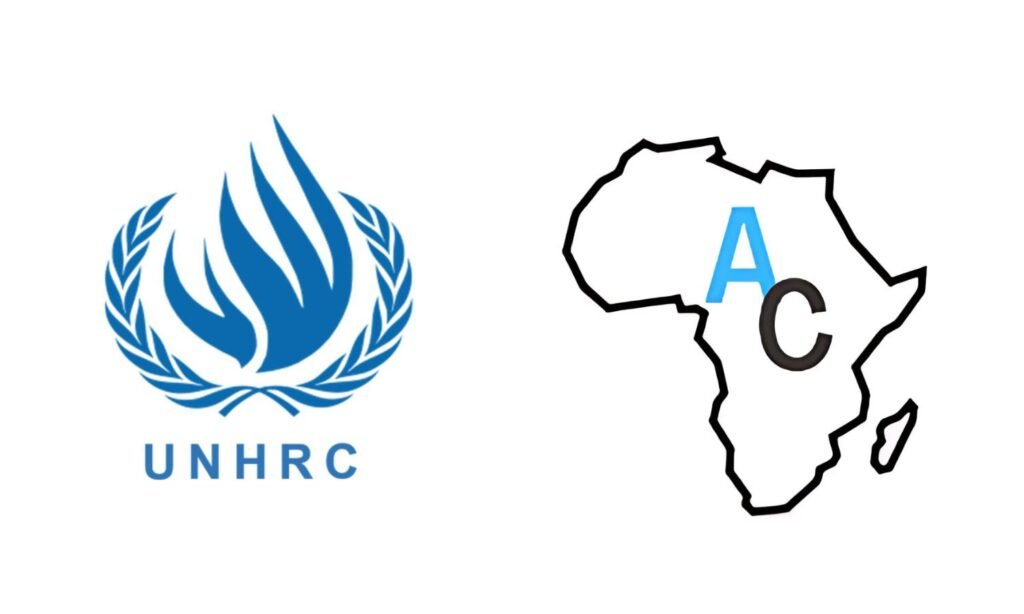
At the 59th session of the UN Human Rights Council, held from 16 June to 9 July 2025, Member States adopted a landmark resolution that brings a critical truth to the forefront: corruption is not just a governance issue; it is a human rights concern. Titled “The Negative Impact of Corruption on the Enjoyment of Human Rights,” Resolution 59/L.6 directly aligns with the African Center’s work at the intersection of asset recovery, anti-corruption, and sustainable development. This global commitment signals fresh momentum for activists, civil society, and state actors alike, particularly in regions such as Sub-Saharan Africa, where corruption continues to undermine fundamental rights and development goals.
UNHRC Resolution: https://documents.un.org/doc/undoc/ltd/g25/102/71/pdf/g2510271.pdf
Why This Resolution Matters
For years, anti-corruption and human rights communities have operated in parallel. Resolution 59/L.6 integrates these two fields, affirming that the fight against corruption is essential to upholding rights such as:
- Freedom of expression and access to information
- Fair and equal treatment before the law
- Access to healthcare and education
- Participation in public life
By reaffirming the United Nations Convention Against Corruption (UNCAC) as the primary global framework, the resolution calls on states to recognize how illicit financial flows, bribery, and abuse of office deprive societies, especially the poor and marginalized, of their dignity, safety, and opportunities.
Key Highlights for Civil Society and Anti-Corruption Advocates
- Recognition of Civil Society and Media: The resolution identifies the need for a safe and enabling environment for civil society, journalists, academia, and whistleblowers, key actors in exposing corruption and promoting accountability. This is a powerful endorsement of the work our partners across Africa do daily, often at great personal risk.
- Focus on Vulnerable Populations: It acknowledges that those in vulnerable situations bear the brunt of corruption’s harm. This reinforces the African Center’s call for equity in development financing and resource distribution, and the urgency of asset recovery to benefit affected communities.
- Human Rights-Based Approach to Anti-Corruption: States are urged to integrate anti-corruption goals into national development strategies, human rights plans, and legal reforms. This approach complements our advocacy for systemic change, particularly through effective implementation of laws like Nigeria’s Proceeds of Crime Act and national anti-corruption strategies.
- Promotion of Education and Technology: The resolution highlights the role of anti-corruption education, open data, and digital tools in building awareness and accountability. This aligns with our recent campaigns using digital platforms to inform the public about asset recovery and rights violations.
- Strengthened International Cooperation: It promotes cross-border cooperation, especially for asset recovery and technical assistance. This is especially significant for African states where stolen assets are often hidden offshore, impeding development and eroding public trust.
What This Means for Africa
The resolution’s adoption is timely. Africa continues to suffer from the corrosive effects of corruption, costing the continent billions annually in illicit financial flows. As we move forward, we must ensure that:
- Human rights institutions and anti-corruption bodies work together at the national level.
- Victims of corruption-related rights abuses have access to justice, remedies, and compensation.
- Civil society remains protected and empowered to hold leaders accountable.
For the African Center, this resolution bolsters our mandate to ensure that stolen assets are returned and used to fulfill social and economic rights, and that our advocacy continues to connect governance reform with sustainable development.
A Call to Action
We call on African governments to:
- Ratify and fully implement the UN Convention Against Corruption;
- Align national anti-corruption strategies with human rights obligations;
- Invest in education, technology, and civil society to build long-term resilience against corruption.
This resolution is more than symbolic. It is a call for joined-up action—where human rights defenders, anti-corruption experts, and citizens unite to reclaim public resources, defend dignity, and advance justice.
Stay Engaged
To become a member of the Network of Asset Recovery and Management Professionals, please click https://lnkd.in/dvydT63Z
🔗 Twitter/X: @Africenterdev
🔗 LinkedIn: https://www.linkedin.com/company/africenterdev


